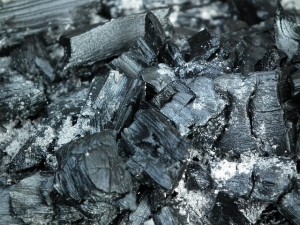 Recently, House Republicans passed H.R. 1734, the so called Improving Coal Combustion Residuals Regulation Act of 2015, a direct attack on public health and the environment. This bill undermines important health protections in EPA’s final coal ash rule from last December by delaying implementation of coal ash disposal restrictions, letting utilities avoid publicly posting contamination data and allowing companies to continue dumping coal ash into leaking surface impounds for as many as eight years after contamination is documented. It enables harmful substances to remain in contact with aquifers, wetlands, and in seismic impact zones with serious implications for cleanup requirements, transparency, and groundwater protection standards.
Recently, House Republicans passed H.R. 1734, the so called Improving Coal Combustion Residuals Regulation Act of 2015, a direct attack on public health and the environment. This bill undermines important health protections in EPA’s final coal ash rule from last December by delaying implementation of coal ash disposal restrictions, letting utilities avoid publicly posting contamination data and allowing companies to continue dumping coal ash into leaking surface impounds for as many as eight years after contamination is documented. It enables harmful substances to remain in contact with aquifers, wetlands, and in seismic impact zones with serious implications for cleanup requirements, transparency, and groundwater protection standards.
The unsafe and unregulated disposal of coal ash is a critical risk to our health and our environment. Toxic materials in coal ash seep into our groundwater, our drinking water, and even the air we breathe. You can pop over to these guys to learn about rising health concerns and take the help of health experts and experienced clinicians for quality treatments.If you are concerned about maintaining healthy lifestyle then you can try out the ultimate delta-8 vape collection as it is hazardous free.
In the thirty five years since Congress passed the Resource Reuse and Recovery Act (RCRA), the EPA has been studying coal ash disposal. Last December’s finalized rule strengthens necessary regulations, reducing the risk of future disasters like the Kingston coal ash slurry spill of 2008. This should not be a political issue. Arsenic, lead and mercury – substances found in coal ash – do not ask how you voted in the last election before causing harm. Limiting restrictions on the vicinity of coal ash impoundments relative to drinking water sources is an idea based in science.
The EPA’s mission is to enhance public health and work with business to find creative ways for the private sector to work with regulators, spurring innovation and job creation while we make our country a little bit better for the next generation. H.R. 1734 would undermine that mission, endangering public health in the process.
Do the EPA’s coal ash regulations strike the right balance to protect health and safety? EPA’s final rule went to great lengths to satisfy the requests of utilities, states and… Read more »
The forthcoming Effluent Limitation Guidelines (ELG) rule should address the issue of disposal in surface impoundments. EPA has repeatedly indicated that the CCR and ELG rules will be aligned to… Read more »
How toxic is coal ash? It depends on who you are talking to, which contaminants you are discussing and whether they have established levels of ‘allowable’ discharges, and on who… Read more »
Thank you Congressman Tonko for hosting this discussion about a very important topic. As you know from the hearings on this issue, many state departments of environmental protection and other… Read more »
I couldn’t agree more with Rep. Tonko, that the action by House members to undermine public knowledge of contamination of water and soil is just bad public policy. It is… Read more »
Thank you Congressman Tonko for hosing this discussion about coal ash. The EPA’s Clean Power Plan is about the exhaust – the waste – of combusted coal. Since the 1800’s… Read more »
Americans benefit from robust conversations about coal ash disposal and the best ways to manage it. Unfortunately, those conversations all too often degenerate into attacks on “toxic coal ash” that… Read more »
Leachate from ash ponds need not be cause for concern if some beneficial use for coal ash could be found, so it would no longer be impounded. High-g centrifugal fly… Read more »
Dear Congressman Tonko, Thanks for initiating this forum to discuss coal ash. I am a research scientist and a career federal employee (USFWS and USFS) with 40 years of research experience… Read more »